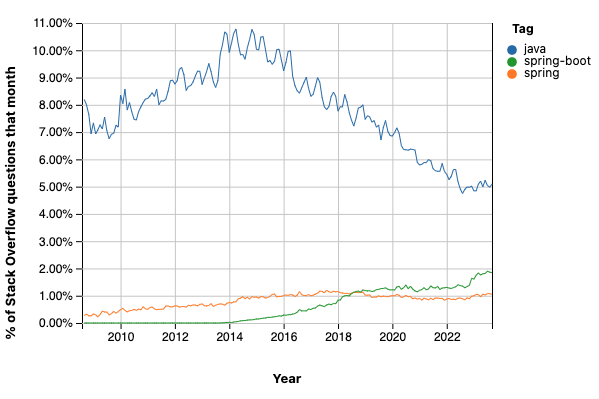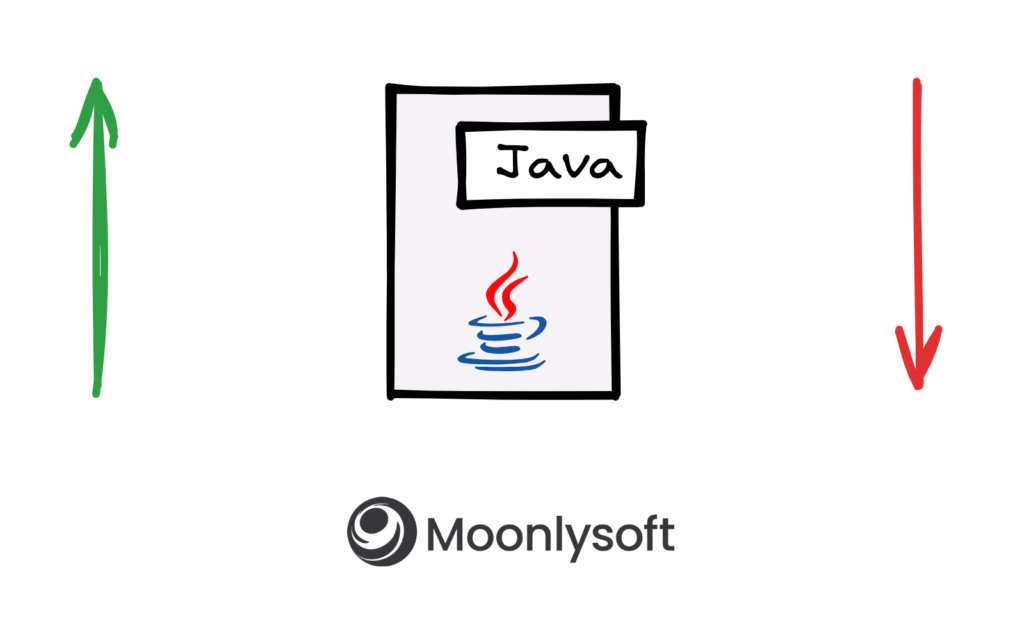Java short history
If you are in the tech industry, there is no way of not hearing about Java. The reason is simple, Java has been the #1 programming language for so many years.
Thanks to James Gosling, Java was born in May 1995 as a main core component for Sun Microsystems. From that moment, the programming language has exploded. It has been used in most of the new applications, thanks to its JVM (Java Virtual Machine) mechanism that allows Java to run everywhere, regarding the OS. It has been used in most Banking systems, Healthcare systems, Android phones and many more.
Today, Java is still one of the most popular programming languages, but it is mainly because of its early success. So, inevitably the question arises:
Is Java still relevant today? Or it is just popular because old infrastructure relies on it?
Current and past trend
One good rule of thumb is to look at the past and based on that, make future predictions. We can easily apply this principle here, and using all the provided data, we’ll make our prediction at the end.
The first stop is Stack Overflow. We can analyze the number of asked questions and build up our thesis.

Java’s number of asked questions peaked somewhere between 2014 and 2016. For reference, I’ve also added the most popular Java framework: Spring.
Although Java started to lose momentum from 2016 onwards, Spring Boot rose beginning in the same year. My assumption is that most Java questions have been asked, while Spring questions have just begun.
The next stop is Google Trends. Because Stack Overflow can’t tell the whole story, I have plotted the Java trend on Google. And it looks surprisingly steady.

Oracle's vision for the future
Recently, Larry Ellison had an interesting keynote session, focusing on Oracle’s next steps and how it would fit in today’s economy. You can find the online session here.
During the event, Larry mentioned APEX , Oracle’s low-code solution for building enterprise-level software. He stated that APEX has a series of advantages, like:
- Teams are dramatically smaller
- The development process is fundamentally different
- Development is faster
- There are no security bugs
- Automatic fault tolerant
APEX is not a new solution, it has been almost 20 years since the initial release. However, it became extremely efficient, at least for Oracle and its partners.
In fact, it became such a viable way of writing code that Larry stated the following: “We’re not going to be writing new applications anymore in Java“.
The might company that relied heavily on Java, arguably Java’s parent, is ditching its own child. What does this mean for us?
Larry continued by mentioning that the support for Java will continue. Furthermore, all of the already existing solutions will continue to use Java, only the new ones will be written using APEX.
I always thought Java would remain a leader in writing enterprise apps and there won’t be any easier option to accomplish the same goal. Looks like Oracle has another opinion and they bet big on replacing Java.
You can see for yourself more info about APEX and a list of showcases
Conclusion
Here at Moonlysoft we really like Java and we found it really helpful in developing solutions for our clients.
We always say that a programming language is just a tool that we as creators (developers) use, and not the other way around. However, I believe that low-code and no-code solution have their own place and are great for MVP’s and eventually an initial version of production. I do not belive that a low-code solution might fit into an enterprise scenario, simply because of its complexity and the lack of flexibility.
This article was meant to be an overview of Oracle’s vision and the latest trends in Java. More info can be found in the links attached along the way.
Java is just a tool, we as developers chose the tools, not the other way around.

